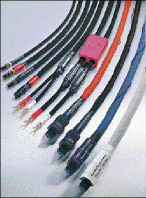High-end audio: The sounds of science?
Thanks largely to improvements in technology and the efforts of design engineers, great advancements have been made in recent years in virtually all electronic products across a variety of industries. Few would begrudge the efforts and abilities of the design engineers responsible for these advancements. Yet in at least one niche area of consumer electronics–high-end audio–a group of “audiophiles” feels that not only have we not advanced the state of the art, we have gone backward, and that design engineers are to blame. In this land–some would say fantasyland–of thousand-dollar cables and ten-thousand-dollar tube amplifiers, EEs and their craft are viewed with suspicion, and even disdain.

Ever in pursuit of better sound, many audiophiles use the language of science to justify the need for a variety of high-end audio components–including expensive interconnects and power cables. But is science really on their side? Here, subjectivity rules. Tubes sound better than solid state, LPs convey music better than CDs, interconnect cables and even power cords all sound dramatically different, and all equipment–including cables–needs to “burn in” to sound its best. Engineers, say these audiophiles, are only interested in specifications and measurements. Technical types just don't appreciate the subtle nuances and conveyed “emotion” that high-end equipment brings to the reproduction of music. The world of high-end audio is about music–not science and engineering. Yet, ironically, many audiophiles seem to feel the need to use objective criteria–the very tools of the engineer–to justify their subjective preferences. As a result, audiophile vocabulary has become replete with scientific nomenclature. For example, sonic differences among cables are due to “skin effect,” “transmission line effects,” or “diodic effects.” And cable burn-in is needed for “dielectric forming,” “alignment of the molecular structure,” or “quantum tunneling effects.” Yet–like the perceived audible differences that prompted them in the first place–none of these technical claims has been confirmed objectively. When challenged about their assertions, audiophiles are quick to accuse skeptics of being closed minded. Or deaf. After all, say audiophiles, they know what they hear. However, science has long been aware of the problems posed by unconscious bias in the laboratory, and of the all-too-common resulting instances of self-deception. By not being willing to accept that they too may be susceptible to such effects, many audiophiles are in fact demonstrating their own closed mindedness. If audiophiles wish to adopt the language of science to justify their beliefs, they should also be willing to adopt the methodology. Yet most dismiss the idea of testing to prove (or disprove) their hypotheses–a critical part of the scientific method–as unnecessary. And perhaps, for many audiophiles, it is. For by closing their “golden ears” to what science has to offer, they are choosing to remain adrift in a sea of subjectivity–forever in search of that “perfect” sound. R. Pell, Editor-in-Chief
Have a comment? Feel free to e-mail us, or post a comment online on our blog at http://eebeat.com. Just click the “comments” link at the bottom of the post relating to this editorial.
Advertisement





